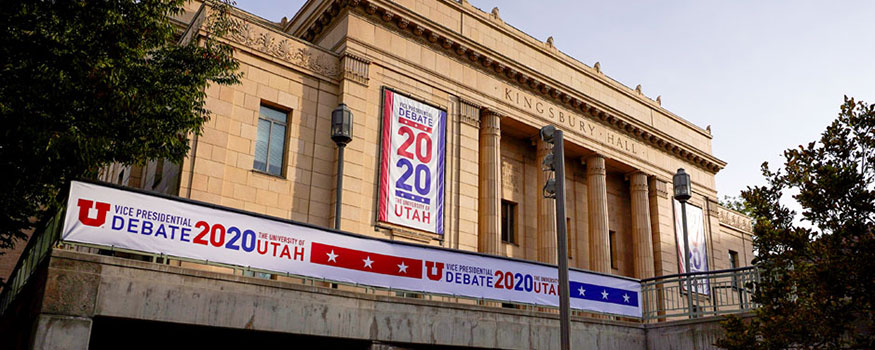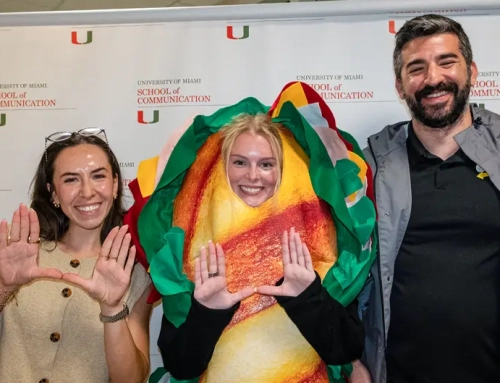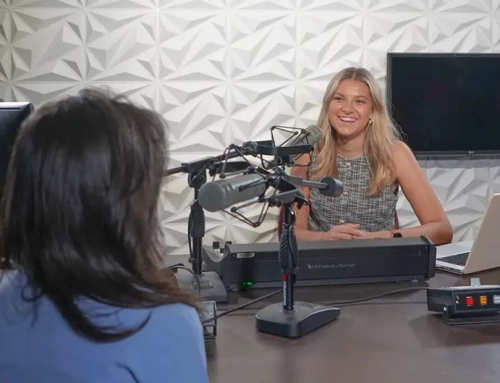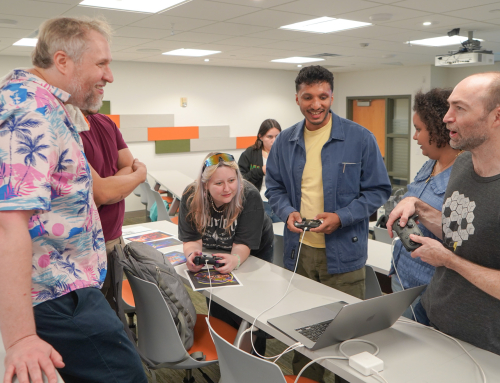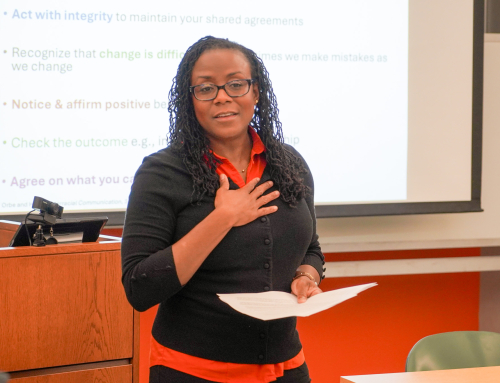By: David L. Steinberg and Patrick E. Waldinger
The University of Miami debate team coaches note that the age of the presidential candidates, President Donald Trump’s COVID-19 diagnosis, and the uncertainty of 2020 are elevating the vice-presidential debate between Mike Pence and Kamala Harris.
In the wake of last week’s “Presidential Debate Debacle” and the shocking news that President Donald Trump tested positive for COVID-19, Wednesday night’s event may be a rare vice-presidential debate that gets a substantial audience.
With the real possibility the last two presidential debates will be canceled and the fact that whoever wins in November would be the oldest president ever elected, the vice-presidential debate has gone from a side show to a main event.
Currently, Vice President Mike Pence and Senator Kamala Harris are still scheduled to debate in person at the University of Utah, sitting 12 feet apart, unmasked, to take questions from Susan Page, Washington bureau chief of USA Today. The debate will be divided into nine, 10-minute segments on topics yet to be revealed, with each candidate having an initial two minutes to respond to questions from Page.
After the contentious presidential debate between Trump and former Vice President Joe Biden, this debate promises to be a more civil exchange. Prior to her election to the U.S. Senate, Harris developed her argumentative skills as a prosecutor, district attorney, and attorney general for California. Her dominate performance in the first Democratic primary debate in 2019 has earned her the reputation of being a strong debater. The senator’s debate style was on display through five Democratic primary debates, her questioning of Supreme Court nominee Brett Kavanaugh, and Attorneys General Jeff Sessions and Bill Barr during Senate Judiciary Committee hearings. She is usually prepared, informed, and assertive.
Pence rose to prominence in Indiana after he—having lost two elections for Congress—became a conservative political talk radio host. The successful “Mike Pence Show” ran from 1994 to 1999 and established Pence as a “Christian, Conservative, and Republican (in that order)” who could disagree without being disagreeable. He was known for his engaging, informed, and open style. Given Pence’s mild manner and Harris’ debate skills, many are underestimating Pence in this debate. But the vice president won his debate with Tim Kaine in 2016, defending Trump as a change agent, without defending his running mate’s demeanor, language, or unsavory personal history. He is usually prepared, informed, and reasonable.
This will be the 11th vice-presidential debate in history, the third in which a woman participates, and the first involving a woman of color. Gender and race dynamics may play a role in this debate as audiences often judge women, especially women of color, differently in their public speaking and debate performances compared to white men. In particular, Harris must balance being forceful with not being too aggressive, especially against a more restrained opponent like Pence. Harris’ reputation as a strong debater is hurting her. Many expect her to dominate, but Pence’s unassuming nature belies that he is a strong debater. Harris may fall victim to her own successes, and anything less than a complete knockout might be seen as a loss.
Harris has been preparing for the debate with her former adversary in the Democratic primaries, Mayor Pete Buttigieg, filling in as Pence. As he did in 2016, the vice president has been practicing with former Gov. Scott Walker of Wisconsin, playing the role of Harris.
Trump’s COVID-19 diagnosis has given a stark reminder to the United States public that at any moment the vice president may have to take over the presidential duties. The vice-presidential debaters traditionally serve to attack the top of their opponent’s ticket, to defend their running mates, and to show voters performative evidence of their top of the ticket’s good judgement in selecting them. This debate, however, held in the midst of a deadly pandemic, representing two men well into their 70s, and with one currently hospitalized, will be significantly different in raising the importance of demonstrating that they are each competent and prepared to be president.
While it is yet to be seen just how Trump’s positive COVID-19 test and hospitalization will impact the election, if COVID-19 was not already the most important issue for the debate, it certainly is now. It will be important for Harris to be careful not to use the first family’s exposure indelicately, while recognizing the severity of the pandemic and its impact on the lives of U.S. residents. She will have the opportunity to offer an action plan for COVID-19 recovery while focusing her attack on Pence. She can make the argument that there is a space between total lockdown and resumption of pre-COVID-19 activity that follows science and good sense. As chair of the President’s Coronavirus Task Force, Pence will be called upon to defend the White House’s approach to the pandemic. His travel and participation in the debate after likely exposure may well violate his own task force’s guidelines.
Harris will be called on to defend Biden as the unifier of a big tent democratic party who aims to be president of all Americans. She can tell his story in a voice not available to him, describing his empathy and strength. Pence will take the opportunity to connect Biden and Harris to the picture of an extreme liberal party. Harris must defend the description of her as far left and challenge the idea that Biden would be unduly influenced by those in the Democratic Party who are more left than he.
Harris is well suited to defend social justice and the need to reform. As a former prosecutor, she can defend police while recognizing the need for change and the existence of institutional structures reinforcing racism, especially in the wake of Trump’s unwillingness to condemn white supremacists. This will be Pence’s opportunity to point to increasing crime and violence.
Pence will hope to reassure evangelical voters with his Christian values and attempt to bring the debate to issues of the economy, which seem to still be a strong suit for the White House. It will be important for Harris to identify the need to “build back better” and to argue that the stock market is a measure of success at the top, but that the middle class and working class have funded the success of the rich. Additional issues to be addressed are likely to include climate change, social justice, and health care.
Last week’s cringe-inducing presidential debate and Trump’s surprise diagnosis are just the latest examples that 2020 is a year of uncertainty. Wednesday’s vice-presidential debate will likely get higher than normal ratings because of the public’s desire to see a real debate and assess for themselves whether these candidates—a “heartbeat away” from the presidency, in a very real sense now—can do the nation’s top job. To add to the uncertainty, with such contrasting personalities, life experiences, policy preferences, and debate styles between the debaters, the vice-presidential debate is difficult to predict and will be fascinating to watch.
David L. Steinberg is the director of debate and an associate professor of professional practice in the University of Miami School of Communication. Patrick E. Waldinger is the assistant director of debate and a senior lecturer in the school.
This article originally appeared at https://news.miami.edu/stories/2020/10/opinion-vice-presidential-debate-expected-to-draw-a-big-audience.html.

